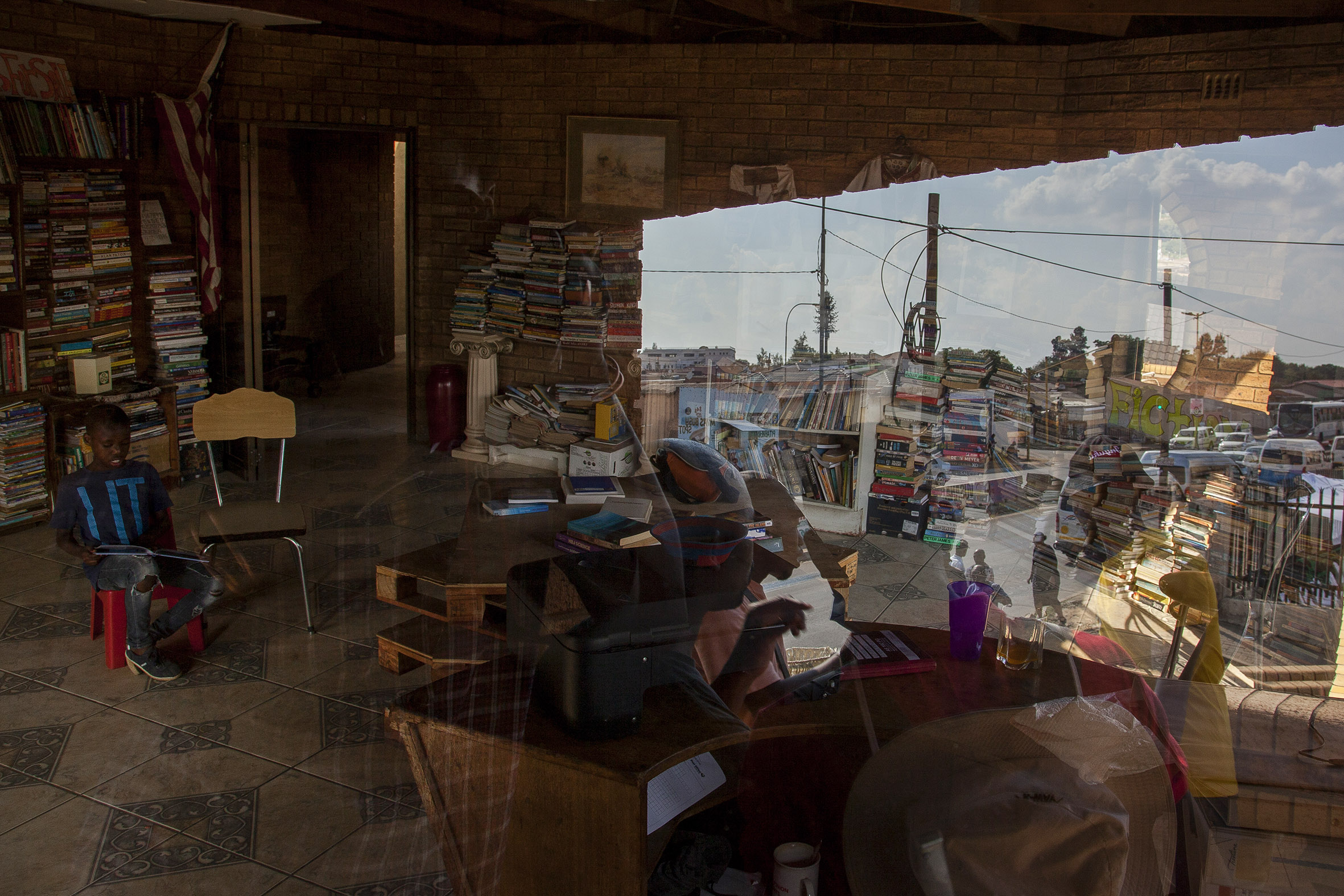Soweto Book Café builds word worlds and connections
Started by Thami Mazibuko, the Zondi space is a library, classroom and community literacy centre, built to serve its residents across generations.
Author:
28 March 2022
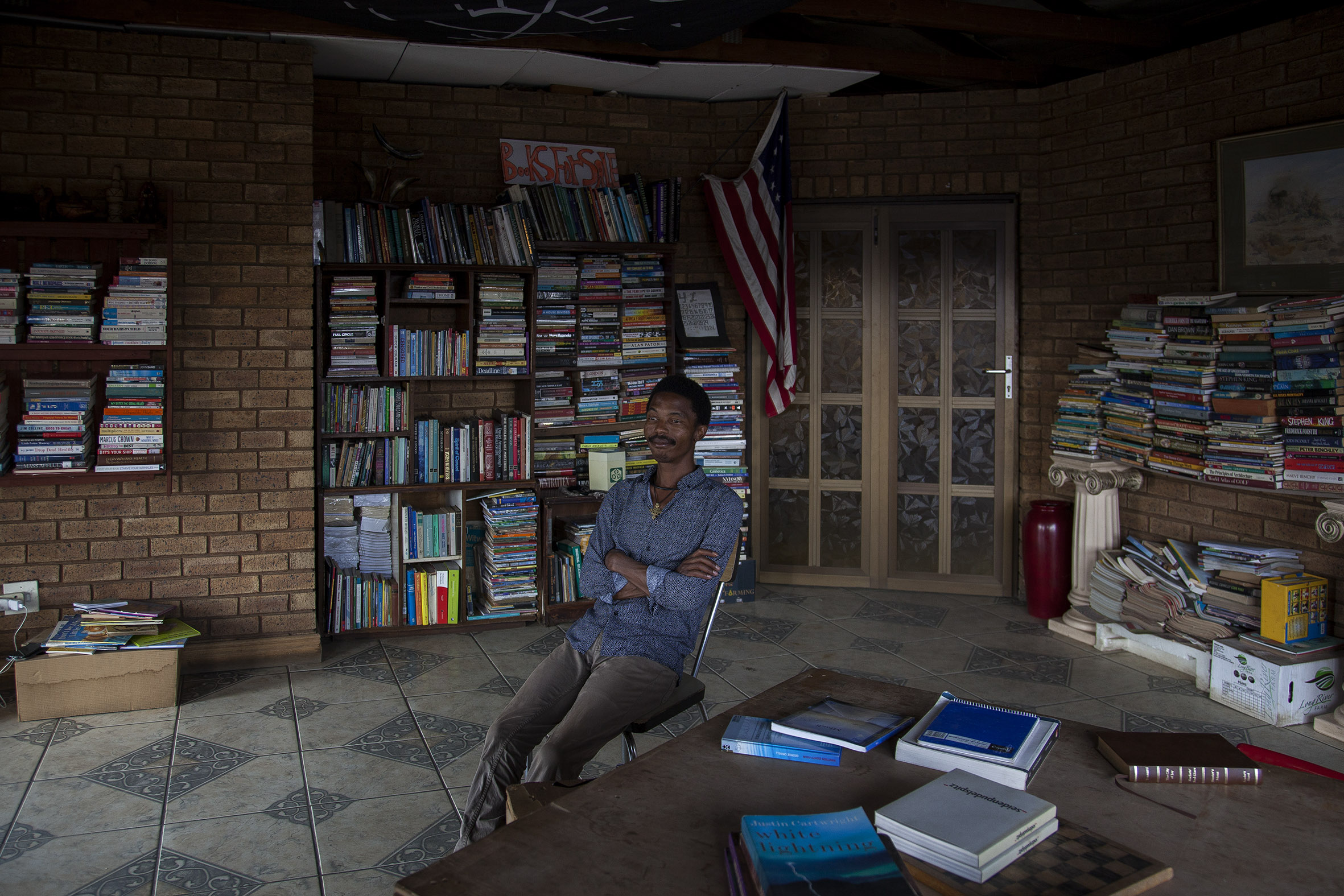
When Thami Mazibuko moved back to Zondi, Soweto, in 2015 having lived in the Johannesburg central business district for a few years, he quickly realised that there were no bookshops in that part of the township – let alone any Black-owned ones. “People in the townships and previously disadvantaged communities do not have access to books. Books are a privilege to them. There are no young Black people owning bookstores in Soweto,” says Mazibuko. This is how the idea for the Soweto Book Café came about.
He started out with his personal collection of about 30 books. Then friends donated more and his “store” grew exponentially – at one time he had as many as 10 000 titles. A surprising donation of an entire library collection from a local school followed, which included textbooks, reference books and setwork novels in IsiXhosa, seSotho, IsiZulu and more.
At that point, Mazibuko realised he needed to find a way to stop accumulating books only and find a way to share them. This gave birth to an initiative where community members could come in and take any book they wanted for free. He also started redistributing some of these books to schools in Soweto. The hunger for books and reading from children, young people and community members in Zondi surprised him. Mazibuko quickly realised that his initiative could become more than just the concept bookstore he had had in mind.
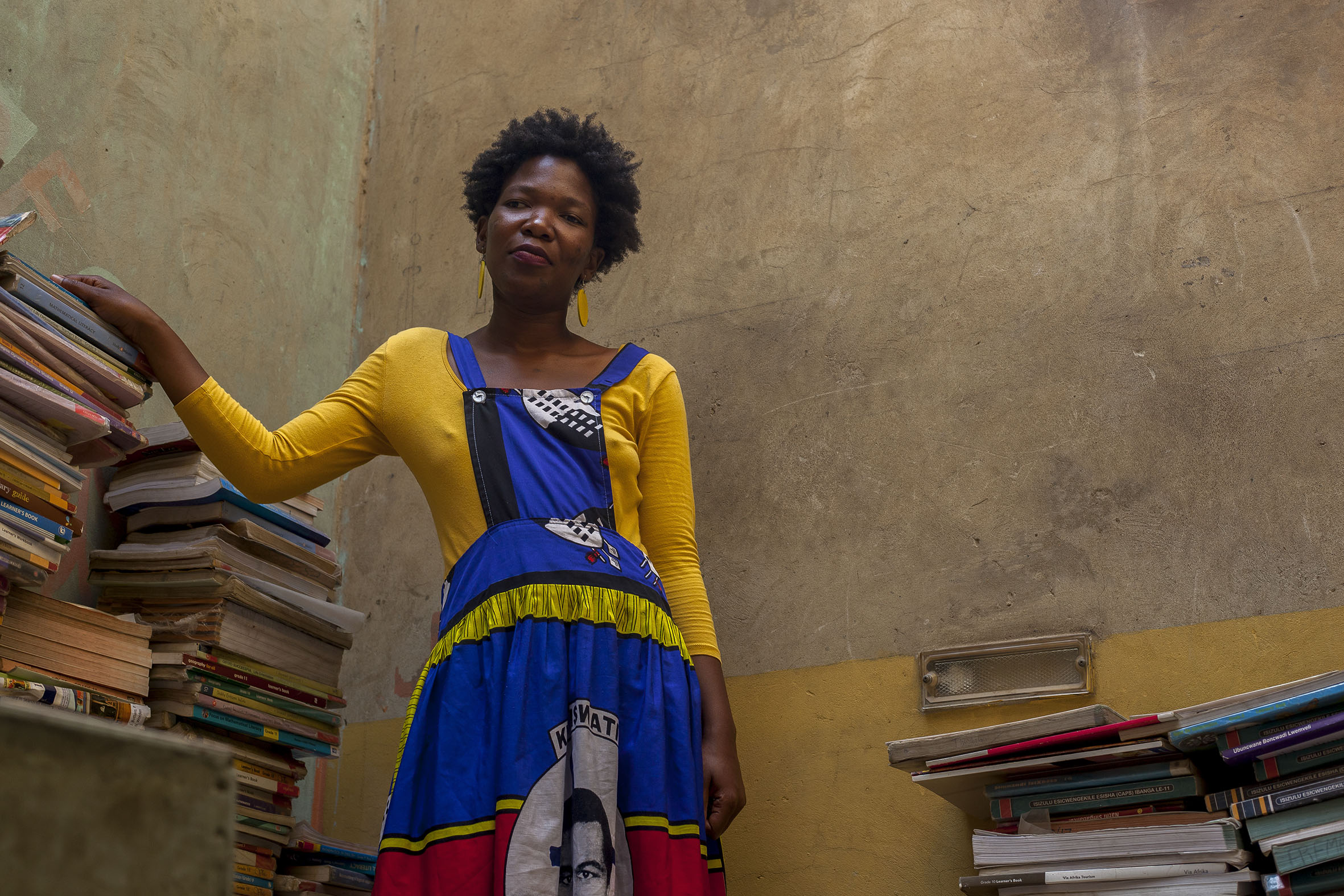
The idea of calling it a library came from the children who started coming in droves. In their words, they did not have a library so close to them and those they knew of, such as Emndeni or Mofolo public libraries, were between five and 10km from Zondi.
“You’ll get one auntie who’s a reader but who does not have books coming and saying, ‘Oh you have books, I used to read, let me start reading again,’” says Mazibuko. These encounters and how the community embraced the Soweto Book Café are what inspires him to continue running the space.
Building community
Sindisiwe Zulu is a storyteller, facilitator and writer who runs a local non-profit organisation associated with the Soweto Book Café. Her focus is on improving reading and writing skills for children and young people in Jabulani, Zondi and Mofolo. Working at Jabavu public library in the children’s section spurred her on to start a book club at her home. During that time, Zulu also noticed that her older sister’s child was struggling at school, and when she asked about it, the youngster said, “It’s the English. We can’t read. Sometimes we can read, but we don’t understand.” The idea of her organisation was born. As an advocate for literacy, she was introduced to Mazibuko and the Soweto Book Cafe, a space that felt like home. The relationship between these abantu bezincwadi, or people of books, has led to the development of various Soweto Book Café signature programmes, including a Saturday literacy class for four- to 16-year-olds, which Zulu runs.
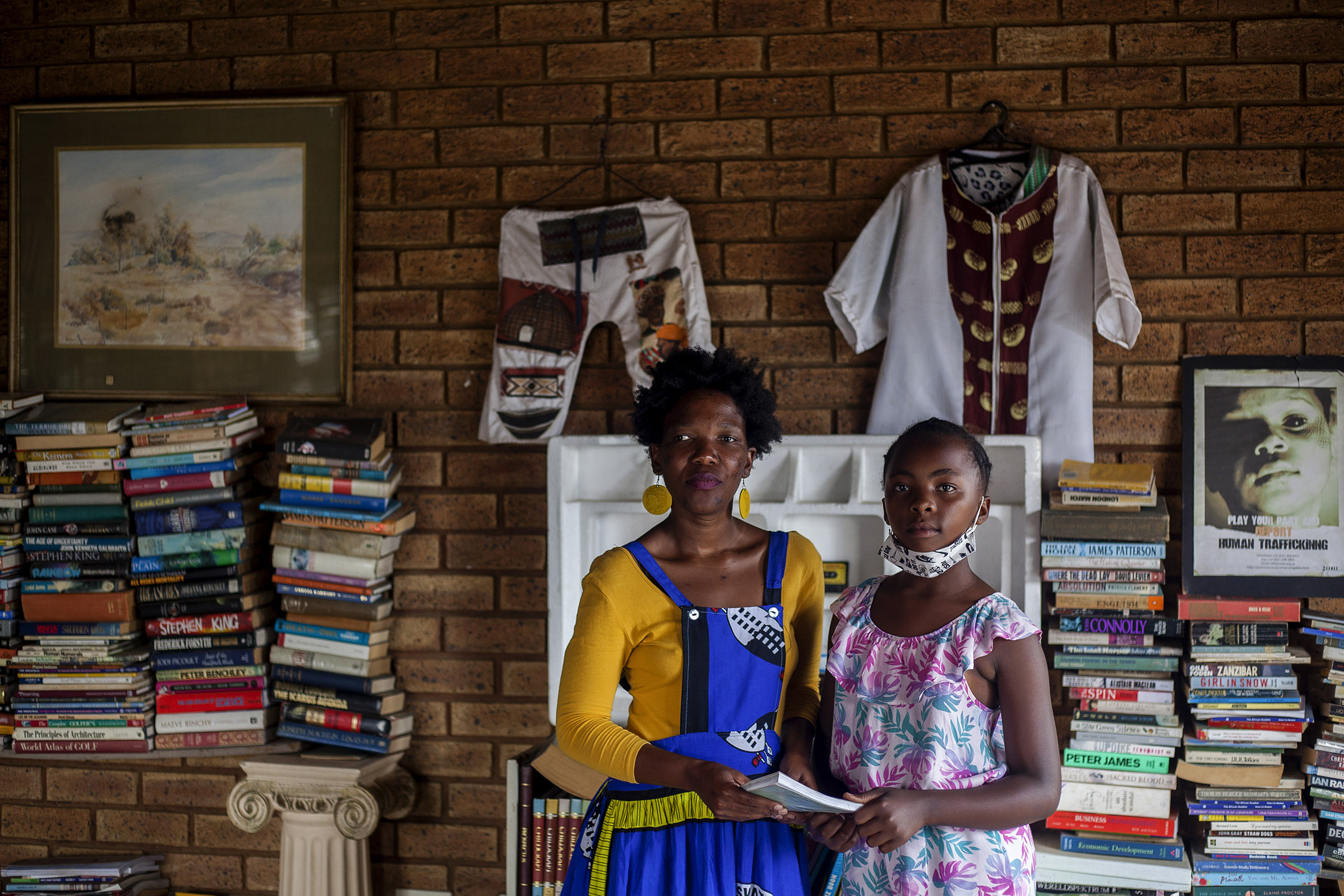
Fourteen-year-old Anele Ndlovu found out about Soweto Book Café from a friend, and she then brought her sister and a few more friends, who are now regulars at the space. She affectionately refers to Mazibuko as “Uncle Tee”, as his Soweto Book Café and by extension himself, have come to represent much more to them as young adults – there they receive counselling, guidance and help navigating life in the township.
“I come here just for a breeze, fresh air, and to clear my mind when I am stressed. I am one of those people who reads a book when they are stressed. So, I come here and read a book peacefully … the environment itself is quite comfortable and Uncle Tee is friendly and helps us with lots of other stuff,” says Ndlovu.
A bridge through books
Mondi “Mordecai” Loni runs a small book publishing operation in Soweto and met Mazibuko through a mutual friend who runs a bookstore in Maboneng, Johannesburg. On the shelves of Soweto Book Café are at least three of the 10 titles Loni has published in the decade he has operated. This is testament to Soweto Book Café’s impact and how it has created opportunities for young people operating within the publishing ecosystem.
“Soweto Book Café brings people to books,” says Loni.
For Jabulani Masimuli, a community leader and avid supporter of the activities at Soweto Book Café, the space gives children and young people access to information so they can know what is going on in the world.
“What we lack is information sharing … plus the kids are finishing school and they need a wider scope of doing things, and the fourth industrial revolution means we’re always catching a ‘double-up’ because everything is run by computers,” says Masimuli.
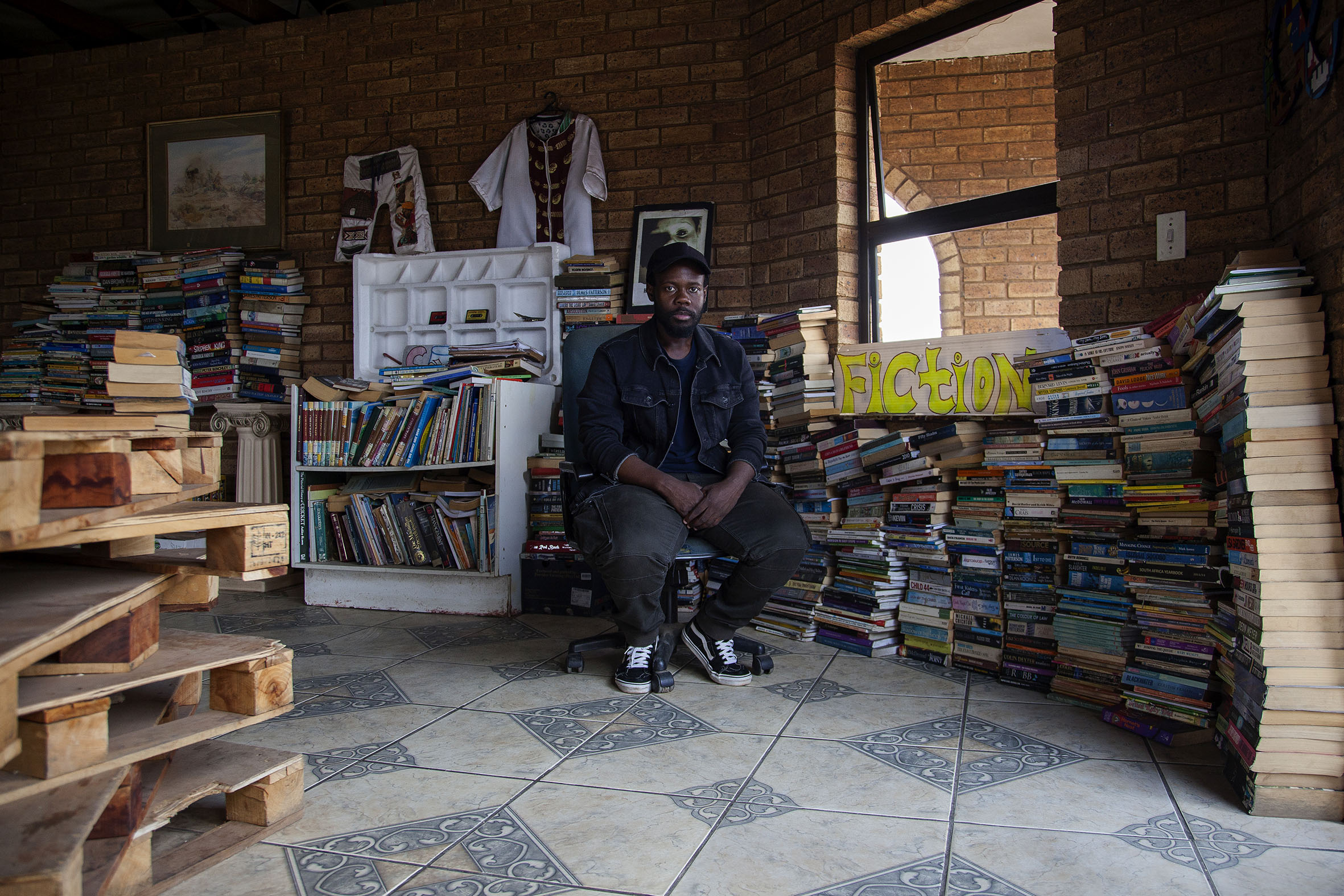
Another collaborator is Sipho Ndlovu. His connection to Soweto Book Café is through a youth non-profit organisation he runs. They partnered on various activities and programmes that culminated in a trip to Germany in 2019 to meet other like-minded organisations.
For Ndlovu, Soweto Book Café “helps break down barriers, and brings different people into the space, from children to adults”, unlike other cultural spaces that, in his view, are not designed to be welcoming and therefore are not as patronised by the community as the café. The overarching objective of the two organisations is to “make books cool again” and, given the daily activity that characterises Soweto Book Café each day, they are doing just that.
Future plans include hosting a literary festival to create another platform for readers, publishers, and book lovers, and to fill the gap left by the demise of the Abantu Book Festival, one of the most important platforms created in Soweto in recent times.
Soweto Book Café has become a proverbial oasis of knowledge, serving the community of Zondi, Soweto, and its surrounds with access to books, art and so much more.
